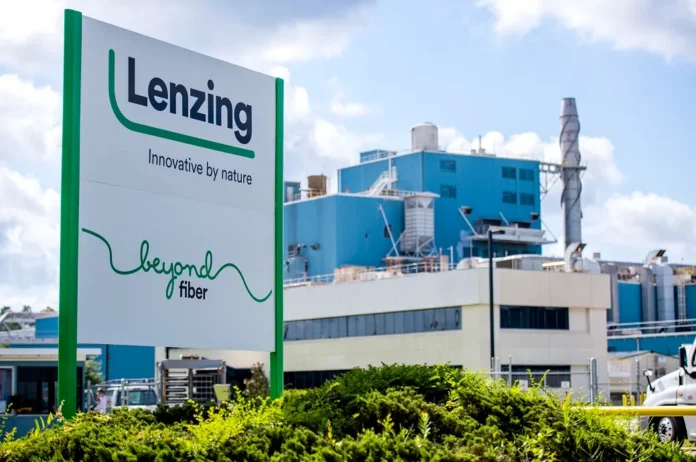Austria-based sustainable specialty fibre supplier Lenzing Group has achieved first place in the Hot Button Ranking of the Canadian non-profit organisation Canopy, thus confirming its leading role in the areas of sustainability and responsible wood and pulp sourcing. Lenzing can also once again celebrate a dark green shirt, synonymous with the highest category.
In this ranking, which receives a lot of attention in the textile and apparel industry, Canopy evaluates the world’s 34 largest producers of cellulosic fibres in terms of their sustainable wood and pulp sourcing, their efforts with regard to the use of alternative raw materials, and their achievements in the protection of ancient and endangered forests, according to a press release by Lenzing.
Resource preservation is a key element of Lenzing’s corporate strategy and at the core of its innovation agenda. The sustainable production of Tencel, Veocel, and Lenzing Ecovero branded specialty fibres is based on these principles.
“We are very pleased that the steps we are taking as the Lenzing Group to continuously improve and find solutions to the most pressing problems of our time are being seen and honoured,” said Robert van de Kerkhof, chief commercial officer fibre of the Lenzing Group. “We are working hard to make our industries even more sustainable and to drive the transformation of the textile business model from linear to circular. Further efforts from the entire industry are needed for this transformation to take place.”
Wood and the pulp derived from it are the most important raw materials for the sustainable production of cellulosic fibres from Lenzing. The Lenzing Group assumes responsibility by striving for sustainable procurement based on environmental certificates and responsible and efficient use of these valuable resources. Lenzing sources wood and dissolving pulp from sustainably managed forests and plantations and not from ancient, protected, or endangered forests.
Promoting the circular economy with its Refibra and Eco Cycle technologies, Lenzing offers solutions for transforming the textile and nonwovens industries towards a circular economy. In line with its vision for the circular economy, ‘We give waste a new life. Every day,’ Lenzing is driving the industry toward a full circular economy by striving to give waste a new life in all aspects of its core business and developing circular solutions together with potential partners inside and outside the current value chain.
A milestone on this path is the cooperation with the Swedish pulp producer Sodra. The two global market leaders, who have been proactively promoting the circular economy in the fashion industry for many years, are joining forces to give the topic a further boost and make a decisive contribution to solving the global textile waste problem by making fibres from post-consumer textiles.
Today, Lenzing offers lyocell fibres made from 30 per cent recycled cotton waste. The company aims to launch lyocell, modal, and viscose staple fibres with up to 50 per cent recycled post-consumer content on a commercial scale by 2025 and to develop a new circular business model by closing the loops for post-consumer waste.
By 2025, the company plans to enter into further partnerships with 25 key supply chain companies, which again highlights Lenzing’s path in climate protection and the circular economy.
Source : Fibre 2 Fashion

